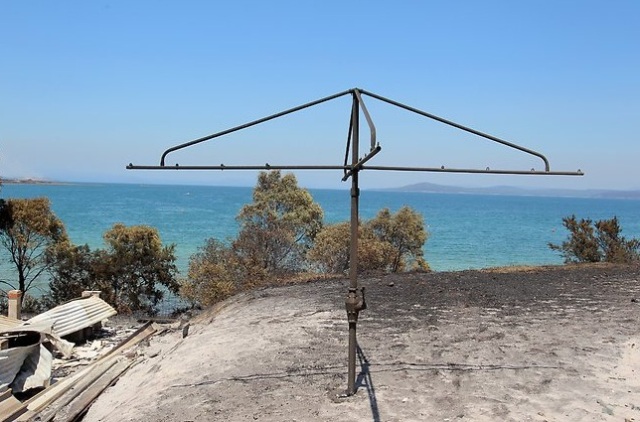 Last Thursday week, the third of January, I was driving home from Hobart, south along the Arthur Highway. A pretty normal day, really. Christmas and New Year had been celebrated, the much-vaunted Mayan apocalypse hadn’t happened, and with Tasmania at the height of its tourist season, traffic along the road was fairly heavy. The weather was unusually hot, with a scorcher predicted for Friday. I was hurrying home so as to be able to take the family down to the beach before dinner. The Tasman Peninsula boasts many spectacular beaches, and our favourite is a well-concealed one that’s not on any tourist map and is effectively a private resort for locals, and a handy escape from the summer heat.
Last Thursday week, the third of January, I was driving home from Hobart, south along the Arthur Highway. A pretty normal day, really. Christmas and New Year had been celebrated, the much-vaunted Mayan apocalypse hadn’t happened, and with Tasmania at the height of its tourist season, traffic along the road was fairly heavy. The weather was unusually hot, with a scorcher predicted for Friday. I was hurrying home so as to be able to take the family down to the beach before dinner. The Tasman Peninsula boasts many spectacular beaches, and our favourite is a well-concealed one that’s not on any tourist map and is effectively a private resort for locals, and a handy escape from the summer heat.
Passing the slow-vehicle turnout at Inala Road at Forcett, I saw a bushfire in a paddock about a kilometre from the highway. It wasn’t a particularly large fire, maybe three hundred metres or so across. What was unusual was the amount of attention being paid to it; at a glance I guessed there were over a dozen fire crews on the ground, plus a chopper water-bombing from above. I now understand what they saw at the time: that if they were unable to contain the fire at Forcett, with Friday’s forecast of strong northerlies, single-digit humidity and temperatures nudging 40°C (104°F), the fire could run away to the south, all the way to the Tasman Peninsula, forty kilometres away.
Friday dawned searingly hot, the temperature well over thirty degrees even in the early morning. The radio news suggested that a number of Tasmanian temperature records might be broken that day. Worse, the Forcett fire had already spread south to Carlton River and was headed directly for Connellys Marsh and Copping. Although I suspected the water at Blackman’s Bay to the east and Dunalley Bay to the west would stop the fire from actually spreading to the Peninsula, I was becoming very uneasy. I decided to cancel my plans for the day and monitor ABC radio, which doubles as Australia’s emergency broadcast system.
I started to think about something I wrote on this blog two years ago; that in an emergency situation, you need two plans, one to stay, and one to go. Mrs. Oz and I had discussed this a long time ago; The Ozboy estate is a mixture of open paddocks and dense eucalyptus forest, some of which borders our house very closely. There is simply no way that we could defend the house from even a half-serious bushfire, and what was heading straight towards us, by all accounts, was a firestorm. So I asked my wife to gather up all our important documents, plus some spare clothes for the kids and ourselves, while I collected some essential supplies and started to pack up the ute and lock the place down.
By 1pm, the radio reported that the temperature in Hobart had hit 41°C (106°F), a new record, that Dunalley was in flames, and houses on the south side of the Denison Canal were under ember attack. Built in 1907, the 700-metre Denison Canal enables boats to travel from the east coast to Hobart without having to round Tasman Island; in the days of sailing ships, it cut a day or so from the journey. It also effectively made the Forestier and Tasman Peninsulas into an island, with a two-lane swing bridge connecting us with “the mainland”. The radio announced that the fire had taken hold on the Forestier Peninsula, that the bridge was blocked and all residents south of Dunalley should evacuate immediately, southwards to the Tasman Civic Centre at Nubeena. I didn’t need any second invitations; we were out the door and on the road within two minutes.
Once at Nubeena, we were told to stay put until the all-clear was given. Little did I realise at the time that that would be a week away. I also heard then that the localities of Murdunna, Pirates Bay, Eaglehawk Neck and Doo Town were now under threat, and started wondering if in fact the fire would make it all the way down to us in Nubeena. What then—jump in the water?
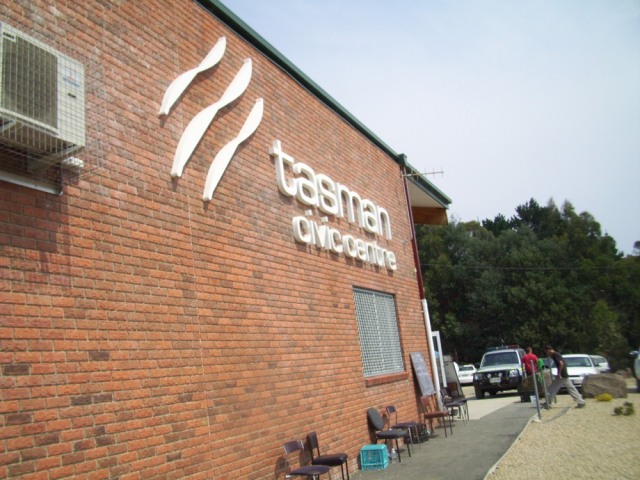 We slept in the ute that night. And the next. A formal evacuation centre was set up at the Civic Centre, so at least we didn’t have to worry about food. But with two thousand tourists and locals gathered there, resources were stretched to the limit. With hundreds of cars parked in the sports ground, and long queues lined up at the makeshift kitchens, we resembled a strange parody of a refugee camp. I wondered how long it would last.
We slept in the ute that night. And the next. A formal evacuation centre was set up at the Civic Centre, so at least we didn’t have to worry about food. But with two thousand tourists and locals gathered there, resources were stretched to the limit. With hundreds of cars parked in the sports ground, and long queues lined up at the makeshift kitchens, we resembled a strange parody of a refugee camp. I wondered how long it would last.
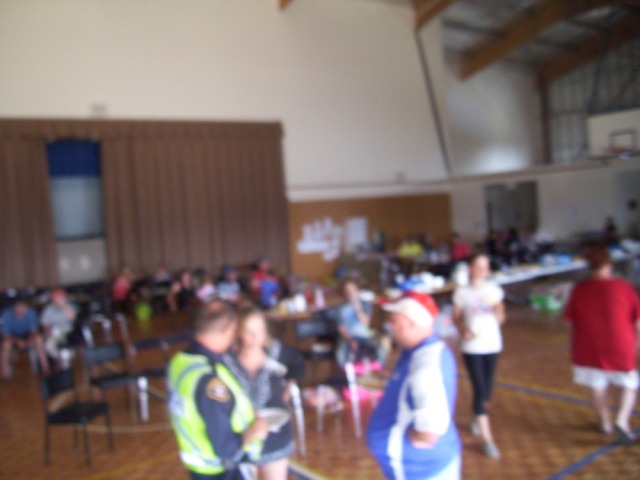 It was on the second morning when we learned that several of our friends had lost their homes. The father-in-law of one of them informed me he had heard the night before on the SES radio that my place, too, had been destroyed. I was stunned: everything I owned, photos and mementos of a lifetime, gone in an instant; yet I dreaded telling my wife even more than contemplating the loss. We spent the night, I guess you could say, grieving; but also planning for the future. We were insured, we could rebuild, bigger and better than before. We weren’t going to let this beat us.
It was on the second morning when we learned that several of our friends had lost their homes. The father-in-law of one of them informed me he had heard the night before on the SES radio that my place, too, had been destroyed. I was stunned: everything I owned, photos and mementos of a lifetime, gone in an instant; yet I dreaded telling my wife even more than contemplating the loss. We spent the night, I guess you could say, grieving; but also planning for the future. We were insured, we could rebuild, bigger and better than before. We weren’t going to let this beat us.
But then came the roller-coaster ride. Lining up for breakfast after a sleepless night, I was approached by a friend from Boomer Bay. Hey Oz, he chirped, did you hear the good news about your place? What are you talking about? I asked, Bob heard on the SES squawk box it went up last night. Nahh, he said, they saved it. Go ask Davo from the SES – he’s right over there. And sure enough, it was confirmed. I was one of the lucky ones after all. Or so I thought.
After two days, large 200-passenger catamarans started bringing down supplies from Hobart to Nubeena’s deep-water port, and taking out stranded tourists, who left behind hire cars, caravans and boats. We were inundated with bottled water, long-life milk and breakfast cereal. After four days, a local approached us and offered us his spare cottage a few minutes’ drive away. I continued to drive in to the Civic Centre each morning and evening for the regular briefings by the police and fire brigade, waiting for news of when we would be able to return to our homes.
The media had also descended en masse to our little backwater community, not only the national TV, radio and print outlets but also journalists from overseas. The latter presumably being flown in and out by the choppers that kept landing behind the Nubeena SES station at frequent intervals. It felt quite surreal to be collared by one journalist after another wanting to know how are you coping? How do you bloody well think, I felt like answering. I have no desire to be a public figure, and experiencing all that media attention has made me even less so. James and Co. can have that all to themselves, thank you very much.
I was particularly grateful that, safely moved into the nearby cottage, my kids were now removed from that situation. After four days with so many people packed into such a small space, tempers were becoming frayed. The tourists who remained were mostly those with motor homes and such, who were unwilling to abandon them. Our mayor, on the other hand, was concerned that resources were stretched beyond the limits of the local council to cope, and was unsuccessfully cajoling them to leave by boat. Tired and stressed herself, matters came to a head at the Monday afternoon briefing, which was broadcast by the nation’s news media and which unfortunately (for us) has since gone viral:
Following this exchange, police (possibly fearful of unrest if they allowed things to continue as they were) began to allow tourists with cars to leave in police-escorted convoys to Sorell, beyond the fire-affected area. But there was no stopping or turning off the highway allowed, so local residents like me were not permitted to join them (I’ve since found out a few of them did anyway). The police also had to search every house in the burned area, to make sure no bodies were found.
By Wednesday, some mobile reception and internet connectivity had been restored, and I managed to get a few minutes on a communal computer, where I discovered the e-mails and messages of concern for us from around the world, some of them from LibertyGibbert’s own blog community (thanks once again for those). I only had time to write a brief comment on the previous thread, but rest assured your sentiments meant a lot to us.
By Thursday, the fire was more or less kept to within containment lines, and we were shown maps of the extent of the blaze. Over 23,000 hectares, or nearly 90 square miles, had been burnt to the ground. My own home was within this area, so I did not know what to expect when we were finally allowed to return.
Finally, on Friday the police gave the all-clear for Peninsula residents to return home. We said farewell to our new friends from Nubeena (their kids and ours have become friends too), and headed off home, armed with a 5kVA petrol generator they had loaned us. We needed it too – the majority of power poles south of Copping had been destroyed, and though Aurora (our local power supply company) were replacing up to 75 poles a day, we were warned it could be weeks before power could be restored to our homes.
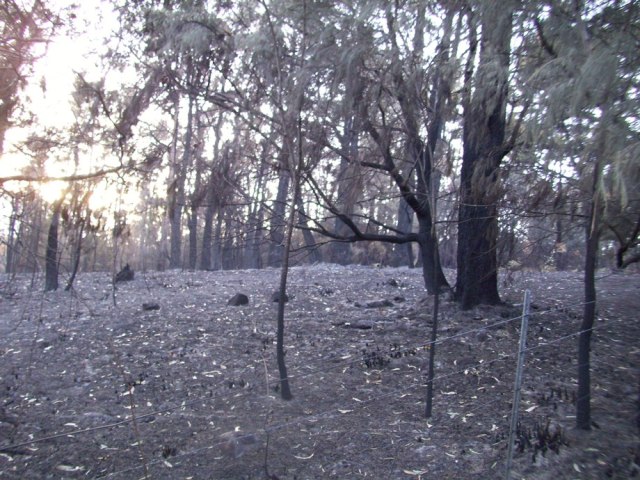 What greeted us as we pulled in at home was something from beyond the apocalypse. The whole region, not just my place, had been burned black. The Ozboy estate had been turned into a lunar landscape of blackened trees and scorched earth. Giant trees over a metre in diameter at the base had crashed to the ground, or else were leaning at crazy angles in the loosened, sandy soil, and will inevitably come down sometime soon. Kilometres of fencing are destroyed, empty post holes often the only evidence of fence posts that have been totally consumed. Fire containment lines bulldozed across my fields remain as ugly scars on the landscape. My beautiful piece of paradise, so far as I can see, is gone.
What greeted us as we pulled in at home was something from beyond the apocalypse. The whole region, not just my place, had been burned black. The Ozboy estate had been turned into a lunar landscape of blackened trees and scorched earth. Giant trees over a metre in diameter at the base had crashed to the ground, or else were leaning at crazy angles in the loosened, sandy soil, and will inevitably come down sometime soon. Kilometres of fencing are destroyed, empty post holes often the only evidence of fence posts that have been totally consumed. Fire containment lines bulldozed across my fields remain as ugly scars on the landscape. My beautiful piece of paradise, so far as I can see, is gone.
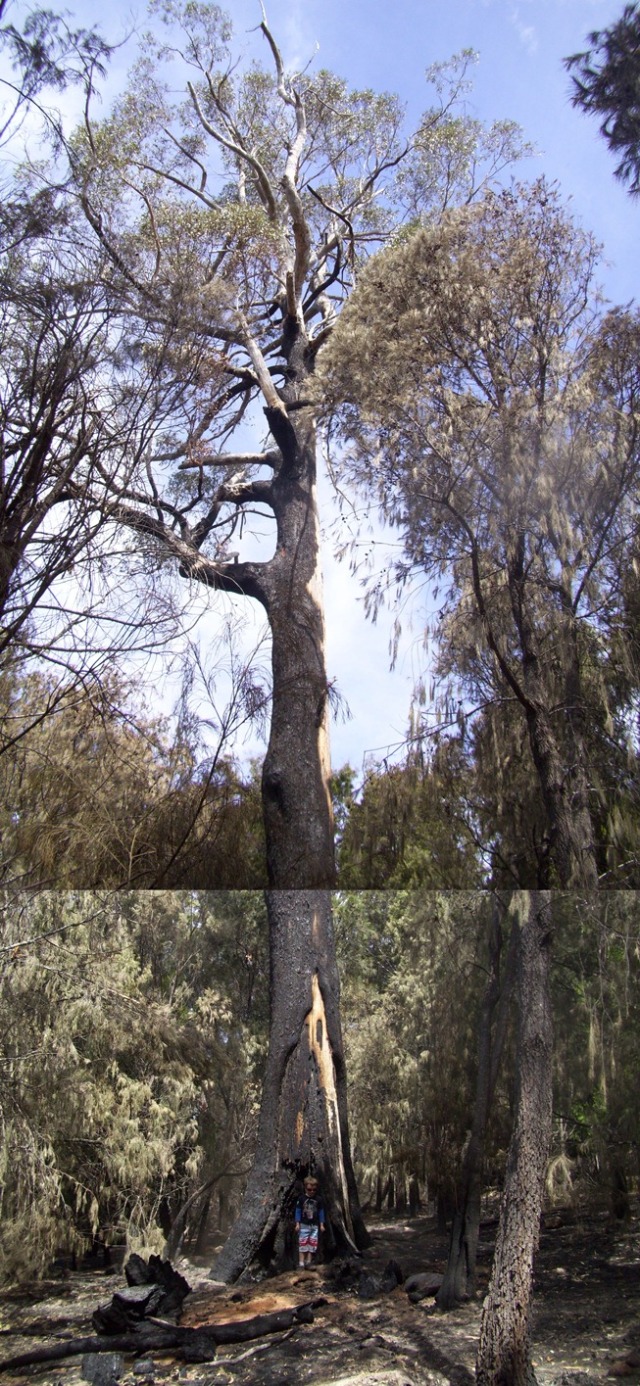
The Skyscraper – the tallest tree on my property (this pic does it no justice, it is all of 45 metres tall) – likely to be the next one to come down
The fireys managed to save my home, though. It’s quite amazing, really: the fire front appears to have split in two, gone each side of my house, and reconnected behind my back shed; an island of green in a sea of black. There are question marks over the house, though. There is clear evidence that structural damage may have occurred in the roof and possibly the floor, and my outside deck was partially burnt and will need to be replaced. I’m insured, so it’s not a question of money. Rather, one of psychic damage—a sense of violation, if you like.
Then the cleanup started, and will go on for weeks, or more likely months. Yesterday I cleaned out and disinfected my chest freezer. I can only show you pictures, not smells, but I can tell you that a whole freezer full of food, including a dozen lamb and pork roasts, kilograms of minced meat and sausages, left without power for a week in the stifling Australian summer heat, has a pungency that will linger in my nostrils forever. I made sure the family were far away when I did this.
And yet, I have every reason to be thankful. My family are all still alive and well. Many of our friends have lost everything. Some, we believe, were not even insured. My son’s school was burned to the ground. Nearby cattle and sheep farms have lost all their stock, either to the fire, starved in the aftermath or, in the absence of fences, are roaming freely about the district. Several businesses whose owners I know have had their premises destroyed, and those that survived may not for another year: tourism is our area’s principal industry, and the peak season from Christmas to late January sustains many businesses over the lean winter months—a summer season destroyed will probably send many of them under.
Inevitably, vultures have descended, seeking to exploit this tragedy for their own ends. Environmental activists are crowing loudly, blaming Global Warming for the Tasmanian fires, as if the fact that last week’s disaster was somehow caused by it being 0.6 degrees hotter than the same bushfires a century ago. What a load of bullshit. Anyone suggesting this doesn’t understand bushfires at all (and I have lived through many). Bushfires, especially the Australian variety, are tricky beasts, whose severity depends on a host of variables, including wind fluctuations, ground fuel load, topography and distribution of vegetation. Certainly, a higher density of human population leads to an increase in “trigger events” (this fire was started, I’ve been told, by a farm hand trying to burn out a tree stump) but natural triggers, most typically lightning strikes, produce an indistinguishable effect.
Nor are they aware of very much history. As devastating as last week’s bushfires were, a far more severe event occurred in Tasmania almost half a century ago, which destroyed ten times the land area, left over sixty people dead, 900 injured and seven thousand homeless, all in the space of a single afternoon. The rather obscene triumphalism of so many thermageddon enthusiasts in the local media this week has left a bitter taste in the mouths of many local residents and fireys, who are all too aware of the real cause of this disaster.
*****
So what have I learned from the last week? I can tell you this has been for me, and for everyone down here who I’ve spoken to about it, a life-changing experience. In terms of this blog and Libertarianism, there’s certainly an impact. Looking back over the last two and a half years’ worth of articles, I think I may have erroneously painted a picture of Libertarianism that equates it with a kind of gung-ho, rugged individualism. Yet even before the fires, I was pondering the social structures that need to be in place before a truly Libertarian society has any chance of succeeding. Family was the one I had in mind, and was to be the subject of my first article this year; for me, family remains the core social structure in our society. We survived as well as we have, and will bounce back from our loss, precisely because we are doing it together as a family. And the family who took us into their home last week, for no reason other than a desire to do something worthwhile, has heightened that perception for me. It’s also made it seem very clear to me why the institution of the family is under attack from totalitarians, and I’ll be having something to say about it later this year.
But last week also made me sharply aware of the importance of community. The entire relief and support effort down in the Tasman last week was organised by the local community, not by government (if you exclude the contribution of the local council, which is really just an extension of our community anyway). To see old and young locals showing up every day last week, cooking in the kitchen, washing dishes, carting supplies, chipping in wherever they could, was not only heart-warming, but indispensible. Without them, the disaster would have been magnified many times. Even the fire itself was fought principally by the local rural fire brigade—a volunteer force. Apart from the professional Fire Service, and Tasmania Police (who I have to say did a magnificent job, and cooperated extremely well with the public), the government did everyone a favour by largely getting out of the way.
And having been given so much by the local community, I’m now determined to find ways of putting something back in. I think that, rather than simply writing about an ideal society, I can be more effective by rolling up my sleeves and actually doing something about it, even if my efforts are anonymous and go unnoticed. So, between that and rebuilding at home, I may not have as much time for blogging this year as I’d like. You’ll still see me about, but probably not as much.
Once again, thanks to everyone here who sent messages of concern and good wishes. I hope the pictures convey an impression of what’s been going on down here the past week. Rebuilding will be a slow and painful process, but it’s underway already. The insurance assessors are contacting me later today. Plans are already underway to rebuild my son’s school, and classes are set to commence in demountable classrooms as per the regular school term. I can see the Aurora trucks racing backward and forward past my place, replacing power poles and infrastructure at an astonishing rate. And in less than a year, the bush will have commenced its natural regeneration process and will be bursting with green, as it always does. Yep, things are lookin’ up.

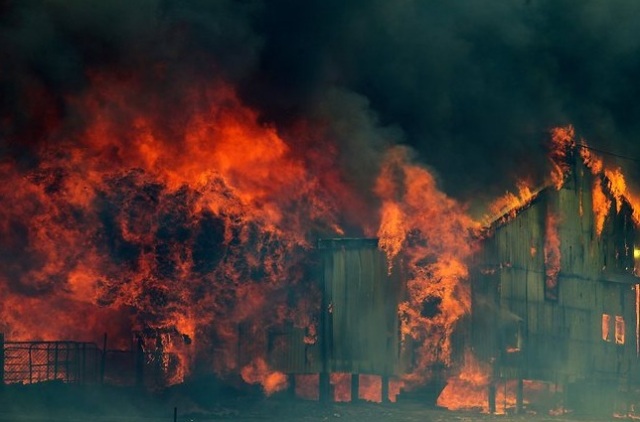
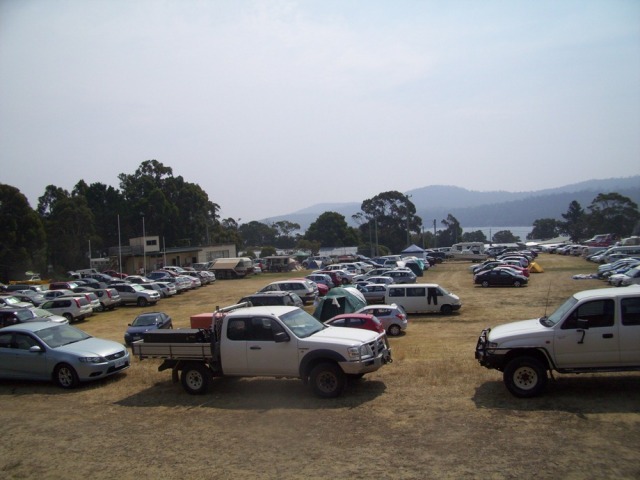
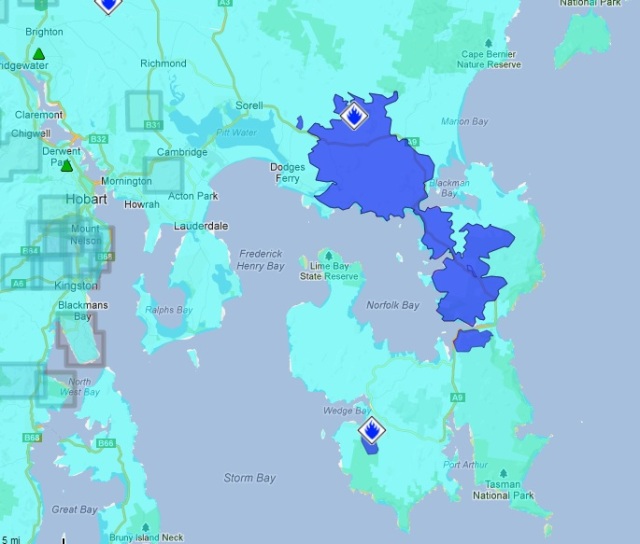
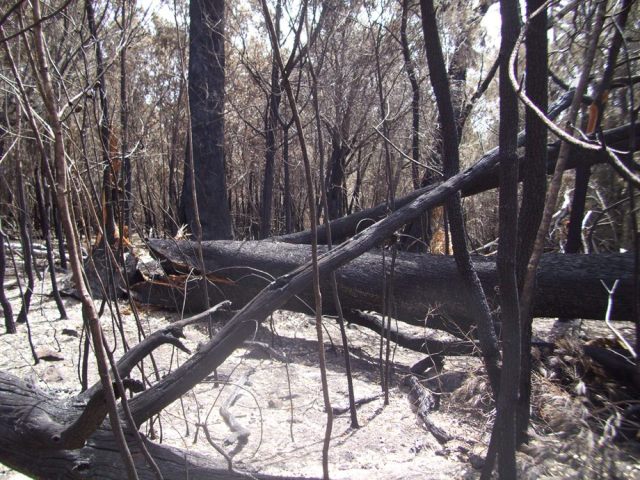
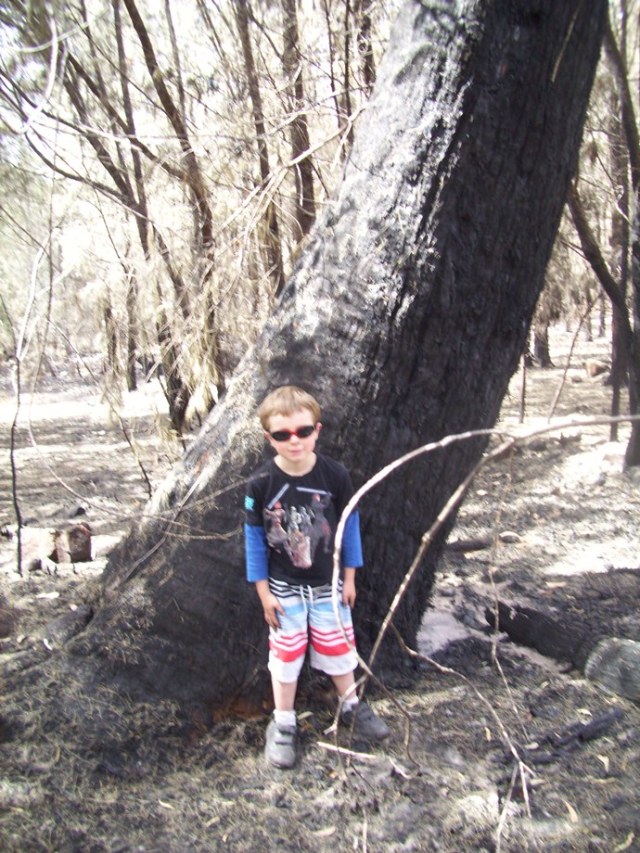
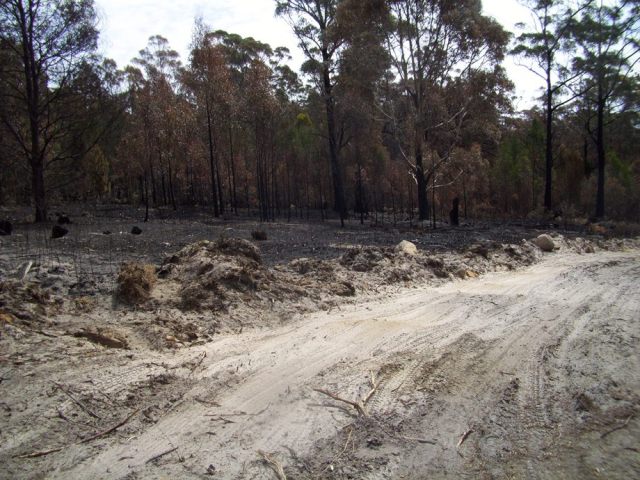
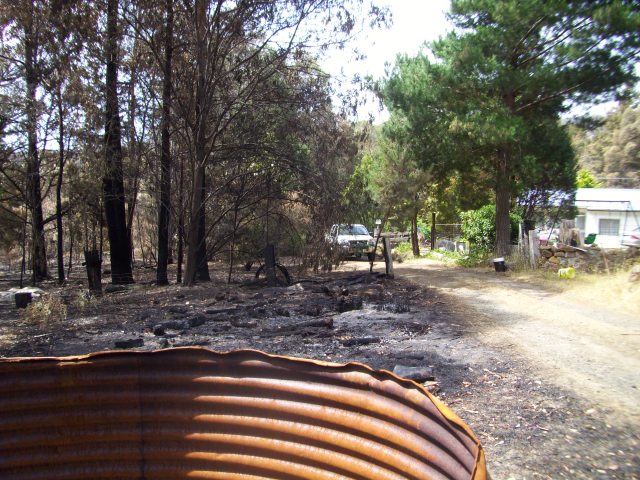
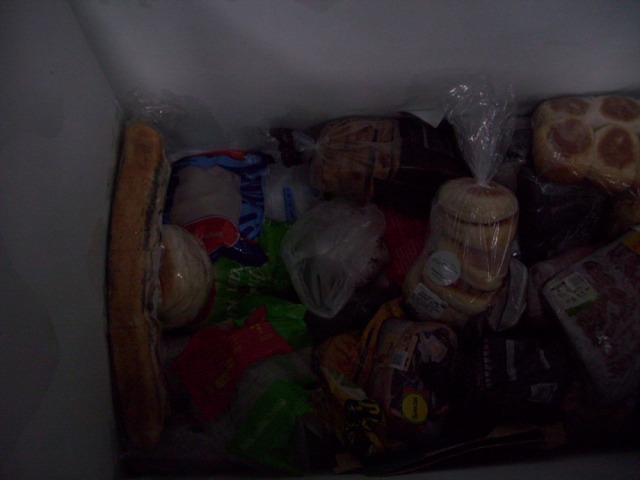
No mention of rain.
Wow Ozboy. How devastating to go through that. What a miracle that you still had a house to come back to. But as you say, a weird form of violation. Makes my experience with hurricanes look like a walk in the park. So glad you and your family are safe.
Thanks for giving us, amidst an event or situation that would be hard for anyone to remain dispassionate about, such a clear-headed account. You’re the best!
With very best wishes to you, your family and neighbours. The JD blog has been quiet without you and many regulars have asked about you. So good wishes from us all.
PS A paste of Bicarbonate of soda for the freezer mixed with lemon helps to get rid of the smell.
Darling: Have a look. Ozboy’s all right but his farm has been destroyed by fire (except the house).
love you xxxxxx
Glad to hear that you are all Ok.
Living somewhere where 1/2 inch of snow stops trains, planes and every thing else, I cannot grasp what you have been through.
What can I say?!……..I’m so sorry Oz. Thanks for taking time out to give a first hand account. The best possible wishes to you, your family, and the community around you, from us all here.
Thank God you’re all OK, or as OK as possible under the circumstances. Certainly a life-changing experience in every sense of the word. We get our own wildfires here most summers but nothing on the scale of yours, and at least Corfu is comparatively green with all the winter rains so they don’t spread as fast. Good luck with your and your community’s rebuilding. Please keep us all updated whenever you get the chance.
Cough. It looks as if a comment that was meant to go somewhere else magically ended up here. Heaven knows how.
Ozboy…. so happy to hear you made it through ok. Lots of work ahead no doubt but you and yours are safe and that’s what really matters.
The Knights of JD ask about you and Amanda has passed them the good word this evening.
Cheers..
A brave account, from a brave guy.
Thinking of you and yours.
Take care and we look forward to seeing you on the DT blogs again soon. My thoughts are with you.
Well I’m sorry I’ve not being attention to your woes in Tasmania work has had me tied up with a couple of big projects, all I can say I’m glad you and your family are safe, things can be rebuilt and probably better than before even the death of old trees gives wildlife a boost with new niches to occupy. I’m just glad you live in a place that still has a sense of community that can pull together when times are toughest. Well all the best from my family to yours and the worst is over and all you have to look forward to are better times and you have a story to tell the Grand kids.
One thing that you need to discuss for the future as a community are controlled burns to reduce the tinder in the forest undergrowth I thought that Eucalyptus forests need to either thinned out or burnt out on a regular basis?
The missus is from out West where they do have forest fires she said they were rare in her area when people were allowed to remove trees and the undergrowth then they had lots of Californians move into the area and they had it all banned after that the fires have gotten bigger and worse.
Yeh you got it Kitler, it’s a bit like watching your farm emerge from the floodwaters, seeing the layer of silt covering everything, flying on the pasture seed before the silt dries out, and off you go again. It’s like rebirth.
The aussie bush bounces back with renewed vigour; just like Ozboy.
My very best to you and yours Oz, glad to hear that you are all safe
Hi Ozboy
Most relieved that you escaped with only moderate damage to property. When I was watching the reports of the fires I knew you were in the firing line and feared it could be worse.
Sorry to hear that the thermogeddonists have been indulging in ‘I told you so-ism’. While it is inconceivable that the warming climate had NO influence on the incidence or severity of the bush-fires, it is also obvious that AGW is just one of many minor factors that shaped the event. AGW is neither a directly causative or significantly exacerbating factor.
Far more significant is the insight it gives into how resilient and robust a society is in the face of extreme events.
I do of course welcome your acknowledgement that it is communal systems that are important when the regular functioning of society is disrupted. Rugged individualism only goes so far, and not very far when the severity and extent of the event is large.
But communal support as provided by the local council and volunteers is only effective if further up the system it is supported by central powers.
Communal support is also shaped by the local context. Very different forms of community are needed in rural/agricultural areas compared to suburban, urban, town and city environments.
Such an underlying resilient system can never be provided or maintained by a commercial enterprise.
Glad to hear you are ok. The most important thing is your personal safety. Obviously home is second, but as long as you are ok, you can rebuild as you say, stronger and better then before….I wish you luck on the rebuild. (I realize the home was somewhat saved, but it will take some rebuilding to make it safe in your mind at least.)
Blimey.
I’m very pleased and relieved to hear that you and yours survived unharmed, Ozboy. Also delighted that fortune favoured you and spared your home.
Best wishes from me and missus Parrot, mate.
Glad you managed to survive such an unpleasant experience, Ozboy – All the Best!
So glad to hear you’re OK mate.
Glad you are all safe and have a home.
How well do potatoes grow where you are?
Community is indeed the way – around here, the cops and the cooncil are doing there best to offer forums for snitch ‘n’ bitch, and general hobbesian conflicts,
even the stasi would have been embarrassed at snitching on people cutting out sapplings in their gardens. I just found out there’d even been a police armed response unit out in the middle of last year.
G’day Ian,
My spuds grow pretty well down here: Pinkeyes are the major variety in Tassie, plus Dutch Creams; we put ’em in early in spring (September) and can start harvesting in the New Year. The best place in Tassie for spuds is around Sassafras in the north of the state: beautiful red-brown, iron-rich soils. The only place on earth you’ll see this – Oz
Pulled a dead wallaby out from under my deck yesterday; poor little bloke was scorched almost black. The loss of the local wildlife is one of the things that will take longest to recover – in the case of devils (the Peninsula devils are largely free of facial tumour disease which has plagued devil populations elsewhere in the state) I suspect it may never come back 😦
Hope that’s not the case, Ozboy. ‘Adopt a devil’: I can see the campaign now…. Would take off like… wildfire.
Poor little buggers, burns are a horrible way to go. I always feel guilty if I scorch a vole or a bunny when I’m burning gorse.
Just a thought, I’ve never heard of a potato field on fire. I know there is labour and expense involved growing tetties, but it is one of many possible ways for a fire break to at least part pay for itself, or part compensate you for not having gums and wattles up to the house.
do you have quarries locally?
>20mm rounded gravel works well as a surfacing, it doesnt create the fines that angular gravel does (they’ve been generated else where) and at >20mm it doesn’t get stuck in the treads of shoes and brought into the house.
you don’t want it more than a couple of inches deep though, as people who have the bad habit of turning the steering wheel when they’re stationary get bogged in it (the ex does that 😛 )
It needs a granular sub base rolled in underneath it, to provide the strength and keep the mud from seeping up.
Once in place – glyphosate keeps it all weeded. Therein lies another story. Chlorate is now banned in Europe – supposedly for health reasons (yeah -pull the other one it’s still used in match heads – far more likely to be sucked by children) I remember an almost explosive grass fire in the wood next door when I was a kid, I think it was spontaneous too, after the old neighbour had used chlorate on the grass.
oz
where has that poor spud had the pole shoved?
(ok – potatoes don’t have such things 😉 )
O/T but FB would just like to share this post from rgb at wuwt
“In a century, we probably will be able to make quantitative climate predictions with some skill. In the current decade, we cannot. AGW is by no means disproven by the last 15 to 18 years of arguably flat temperatures, just as it was by no means proven by the temperature rise that occurred during the ENSO event or since the end of the LIA or the Dalton minimum. Temperature change cannot either prove or disprove the (C)AGW hypothesis, not without a full understanding of the climate system sufficient to predict what the temperature would be in the absence of extra CO_2, which we utterly lack. All the more so since we have to understand it in the presence or absence of CO_2, soot, various aerosols of anthropogenic or natural origin, with a variable sun, varying phases of decadal oscillations, and an unknown ocean sucking heat down or delivering heat up in a global circulation process with timescales ranging from years to centuries, with land use changes and pollutants in the waters that have visible global effects that we do not yet understand, all in a highly nonlinear chaotic system with numerous feedbacks and spontaneous self-organizing stabilizing macroscopic phenomena with global impact, on a planet that is inexorably pursing an orbital cycle that completely changes the underlying “equilibrium” over time in ways we do not fully understand and cannot predict or compute.
In the meantime, prudence suggests that we concentrate on the ongoing disaster of global energy poverty first as it is a certain disaster that is happening now and forces 1/3 of the world’s population to live in near prehistoric levels of poverty and misery. Even if CO_2 were precisely as disastrous as the worst-case CAGW scenarios suggest — which few people believe any more, including climate scientists — the impact of a 2.5-3.5 C rise in global temperature by the end of the century will be smaller than the impact of a century more of global energy poverty, even if the ocean does rise a full meter or more, even if storms do actually get discernibly worse eventually, even if there is increased desertification, none of which are currently observible.
Somewhere in the world, as I type this, not one but hundreds of millions of people are cooking a sparse day’s meal on animal dung or a small charcoal fire. Their children are breathing in particulates and smoke and suffering from malnutrition and diseases. Their clothes must be hand washed, if they are washed at all. They have neither fresh, clean water nor anything but the great outdoors as a sewer system. Some two billion people will light their homes — if one can call a tin shanty or mud or grass hut a home — with an oil lamp or nothing at all tonight. The children of those two billion people will not go to school tomorrow, cannot read or do simple arithmetic, and will go to bed hungry (indeed, live always hungry, as they do not take in enough food to support their growth). They will grow up stunted in stature and damaged in their brains, all because they lack access to cheap electricity, running clean water and sewer facilities and clothes washing and refrigeration and schools and houses and adequate supplies of fertilizer-grown food that electricity enables. Many will die young, or live to become “criminals” as they do what they must to stay alive, or will become cannon fodder for anyone who promises to give them a better life if they will fight and die for them.
They, not the threat of a supposed apocalypse that might or might not happen in a century, are the moral imperative of the twenty-first century. There is no need for 1/3 of the world’s population to live in squalid misery — not any more. We have the technology, we have the wealth, to utterly eliminate global poverty within a few decades. What we lack is the will and the vision to do so.
And we will never succeed in doing so at the same time we make energy more expensive and discourage its use. The poverty in question is energy poverty. Fundamentally. With enough, cheap enough, energy, we can make the deserts bloom, create jobs in the heart of Africa or India or South America, bring medicine and electric lights and running water to the world. Cheap, clean energy solves all problems; it is the fundamental scarcity.”
completely OT
Kitler, comments are closed over at knottedprop, so I’ll put the linnk here
http://www.guardian.co.uk/world/2013/jan/16/software-developer-outsources-own-job
arguably he was providing excellent value as an arbitrageur
Mrs Oz and I were discussing this story today. It’s a remarkable tale of moral anal retention. The guy was voted the best developer of his firm, month after month, based on his work. What he actually was doing was, acting in the rôle of a project manager, well above his own pay grade. Surely they should have congratulated him, and promoted him? Yet this protestant-work-ethic mentality saw him get fired, because he didn’t actually do the assigned work himself? The fact was, he got the work done, and did it his own way.
Beats me – Oz 🙄
I’m interested to hear the end of this computer story. We haven’t been told what the firm did apart from sack their employee. Are they still continuing to use the services of the Chinese firm that he brokered for them? Or have they ended the contract?….And if so are they better off for doing so?
This is at best, half a story. What is their ex-employee doing now? Is he continuing to represent the Chinese contractors to other western firms? I feel there is something here we could all learn from.
I have mostly come across this the other way around. I’ve lost work to freelance illustrators from third world countries, because they can massively undercut. I’ve had it happen that their work has subsequently been returned to me to put right in a hurry because of cultural differences, that makes their work unusable. Surely this situation can be used to the advantage of us minions, as well as to the advantage and convenience of our overlords?
Luton Ian and Ozboy the man was not fired for outsourcing his own job as that is not illegal in itself it was that the fact that he broke security policy by sending the Chinese company his VPN token and provided his own credentials so that the gentleman doing the work could log on to the companies systems. This is a major security breach and the Chinese could have if they had chosen started looking around and stealing company secrets.
Are you sure about that? You know as well as I do that you can limit an account’s access to a network in virtually unlimited ways. Certainly he could have arranged for his own account to be so limited before he handed over his VPN access token. I’ve heard other people putting this argument about, and I’m not buying it.
If, on the other hand, there is concrete evidence that the bloke gave his subcontractors sysadmin level access, well that’s another story – Oz
The guy in China will have had the same rights and access as the guy who gave it to him and it took two years to catch him which tells me they did not do as good a job of securing things as they should, as a programmer he would have given the guy those same rights. Usually your regular employees get one kind of tunnel which is fairly open but restricted by network account access but vendors or outside parties get restricted tunnels locked down by firewall addresses and ports then you have another layer of security through the Network account. Of course the thought of adding in new code to try and exploit open ports on the system never occurred to anyone in China. I am far more concerned at the lack of monitoring and security at those companies who obviously did not give a crap and spared every expense whenever possible. It would be interesting to know which companies this man worked for.
The security issue is the major concern and was downplayed because it embarrasses the companies affected and make the leaders look like a bunch of monkeys in a banana plantation.
@- farmer braun
“They, not the threat of a supposed apocalypse that might or might not happen in a century, are the moral imperative of the twenty-first century. There is no need for 1/3 of the world’s population to live in squalid misery — not any more. We have the technology, we have the wealth, to utterly eliminate global poverty within a few decades. What we lack is the will and the vision to do so.
…. With enough, cheap enough, energy, we can make the deserts bloom, create jobs in the heart of Africa or India or South America, bring medicine and electric lights and running water to the world. Cheap, clean energy solves all problems; it is the fundamental scarcity.”
Much truth in this, the resilience or robustness of society is greatly increased by eliminating poverty. But I am surprised that WUWT ran such a radical piece. This sort of revolutionary utopianism is even avoided by the radical left these days. Calling for an end to globalised capitalism, the redistribution of resources and the overthrow of many authoritarian governments which is what the program for eliminating poverty would require is not generally politically well received these days.
Perhaps it was presented as if it was a ‘merely’ technical problem to removed squalid misery from a 1/3 of the global population instead of an intrinsic characteristic of the present commercial system.
Historical observation, rather than economic theory shows that the present business system increases disparities of wealth and perpetuates the resource exploitation of colonised nations. Eliminating poverty as this article suggests is a matter of significant reformation of the way resources are managed globally which will entail dismantling most of the current trading and financial infrastructure in favour of a new system that ensures the global collectivism required.
Energy poverty is the key problem and requires a technological solution, or more likely, many technological solutions in the absence of a turboencabulator with quantum hypercore. Fossil fuels are neither cheap or clean. Five years after peak oil there is no prospect of liquid fuel prices dropping, they will only rise. Coal and fracked gas have problems in extraction and transport. Neither are the basis for sustainable cheap clean energy.
Reducing the cost of PV systems would be a good advance, efficiency is less a matter of concern if a PV sheet could be produced for pennies that would power computers and web access. LEPs and LEDs will provide efficient lighting. Such systems are excellent and appropriate for supplying power to individuals and small communities but do not support large cities and industrial scales of generation.
But this sort of utopian political approach {eliminate global poverty!} is even less likely to be attempted in the face of strong economic interests than the rather more modest attempt to constrain fossil fuel polution. Again I am surprised that such extreme and radical political programs are put forward at WUWT.
Perhaps they were prepared to ignore its implications for revolutionary change to the capitalist status quo because it fed their confirmation bias by suggesting that rising CO2 is a minor problem, or more precisley a small part of a much bigger one, global inequality.
Ah yes, the Turbo Encabulator. It’s the solution to all of it you know; global poverty, deserts, you name it – Oz
For those of you unfamiliar with this marvel of modern engineering, here it is, explained in layman’s terms:
Izen , FB didn’t read quite that much into what was, after all, no more than the thoughts of one commenter at wuwt, but a reasonably influential commenter nevertheless.
Perhaps there was an assumption that the present “capitalist” system, dysfunctional as it is , is about to undergo some sort of upheaval which might see a temporary respite from the worst of the cronyism and elitism that are the distinguishing features of the present rort.
But more likely the point was that there are real , widely-accepted and remediable problems facing us in the immediate p[resent, in contrast to future problems which may not be nearly as bad as was once thought, if they materialise at all.
That’s true – I suspect FB and Izen are debating two separate issues – Oz
As Ozboy suggest we may be discussing different problems, but I suspect there us a link.
The idea that capitalism can be divested of its cronyism, elitism and creation of wealth disparities seems utopian in the face of historical evidence.
The idea that there are other global problems like food poverty and energy shortages that dwarf AGW is not new, Lomberg tried it in his book.
But those are socio-political problems, the technological solutions exist but the political ability to apply them is lacking. The same could be said of AGW.
But perhaps a warning, or ‘ heads up’ from the Alarmist{sic} camp may be in order.
There is an emerging strand of thought in the Earth sciences field that AGW is just one small aspect of a much bigger problem in human use of global resources. It comes from the search for sustainable systems to provide food and energy and the difficulty of achieving that goal.
There are some researchers, and environmental activists, who are pointing to the fragility of biological ecosystems in the face of climate change or resource extraction. They claim that most of current practice makes the unstated assumption that present ecosystems are resilient and will survive the stresses put upon them by human activities. That if any of these basic ecosystems fail they would take human civilisation down with them. One example is the replacement of vertebrate fish in the oceans with invertebrates like jellyfish and sea-squirts. This may be partially influenced by overfishing, but climate change and chemical pollution may also play a role. Without the ocean food source able to provide coastal societies with fish a major source of protien for human consumption vanishes. The is no known way of reversing the changes in such ecosystems as the continued abscence of cod from the Grand banks indicates.
I have my doubts that ecosystems are as fragile as the more apocalyptic claims of this camp declare. But the resilience of human society in the face of ecological disruption is again a factor. In this situation uncertainty is not reassuring. The fact that we do not, and possibly cannot know what ecological effects human activities will have,and how those effects will impact human agriculture is a cause for increased concern not complacency.
Hang in there Ozboy; farmerbraun and izen are creeping inexorably towards the big one – the role of carbon in agriculture. Or the real carbon story , if you like.
FB has long argued that if we sorted out our carbon sinks , although we might run the risk of lowering atmospheric CO2 somewhat in the process, we might find that we are addressing several purported problems at once.
It’s reasonable to suppose that if we were hugely successful in reinstating the carbon content of the world’s oceans and soils, thus sorting some of the energy poverty issues (which FB feels sure we can agree on), and in the process , we DANGEROUSLY lowered atmospheric CO2, then we could just turn around and burn some more coal in our new clean coal -fired power stations where NOx, SOx and COx are all captured for use as fertilisers. We could just capture the N2 and S and let the CO2 go. 🙂
BLASPHEMER!!!!! Oz
Izen, your references to resilience seem aposite to this whole question of sustainability, but fb perceives that there is always a seeming reluctance to talk about hard numbers.
The question is always; what standard of living and for how many.
Another fond farewell, Patty, lead singer and last survivor of the Andrews Sisters, passed away yesterday at her home in Los Angeles at the age of 94.
Without them, there would never have been the Bee Gees 🙂
And some breaking news from Australia: Craig Thomson, to whom I introduced you back here (and here and here), was arrested an hour ago and will be charged with approximately 150 offences relating to fraud and misuse of union funds.
The mills of God grind slowly, but they grind exceedingly small…
Oooo: just days after the announcement of the election date.
Good of Craig to provide the media with a feeding frenzy for . . . aw . . . let’s say . . . a bit over nine months.
Pure coincidence of course . . . again.
It’s unprecedented in this country for a PM to call an election date eight months out. Nor, apparently, did Julia consult any of her parliamentary colleagues (such as Michael Danby, one of two Jews in the Lower House, who would have immediately told her that the date she had chosen, September 14, was also Yom Kippur, their faith’s holiest day of the year). Daft.
There are many theories about why she did this. I have my own, which I related here on Michael Smith’s blog. I reckon she had no choice but to get in first. Nor could she tell anybody else about it beforehand. This promises to be a most interesting election year – Oz
Rats from a sinking ship…
Robert McClelland, one of the most honourable of Labor members left in the House, announced his retirement this week, days ahead of the announcement of the election. Though he surely was unaware of it, the timing was fortuitous. He had the ill fortune to be a Kevin Rudd loyalist, and was stripped by Gillard of his portfolio as Attorney-General as a result, the post going to the hapless Nicola Roxon. McClelland, held in high regard even by his political opponents, is rumoured to have applied for, and received, an appointment as a Commissioner on the NSW Industrial Relations Tribunal. We must wish him well in his post-political career.
Then yesterday, Chris Evans, Minister for Higher Education and Leader of the Government in the Senate, announced he too was quitting politics. The reasons given are vague, but sources close to the Labor veteran suggest he has “had enough”. Now today, Roxon herself is expected to announce her retirement from politics at the end of the current parliamentary term. This is turning into a stampede.
Vote them out Australia. And the carbon tax with it……Meanwhile we have our own.
….Long Long Ago……
Sorry haven’t been in touch recently Oz. All the best to you, family, & all in getting back to normal.